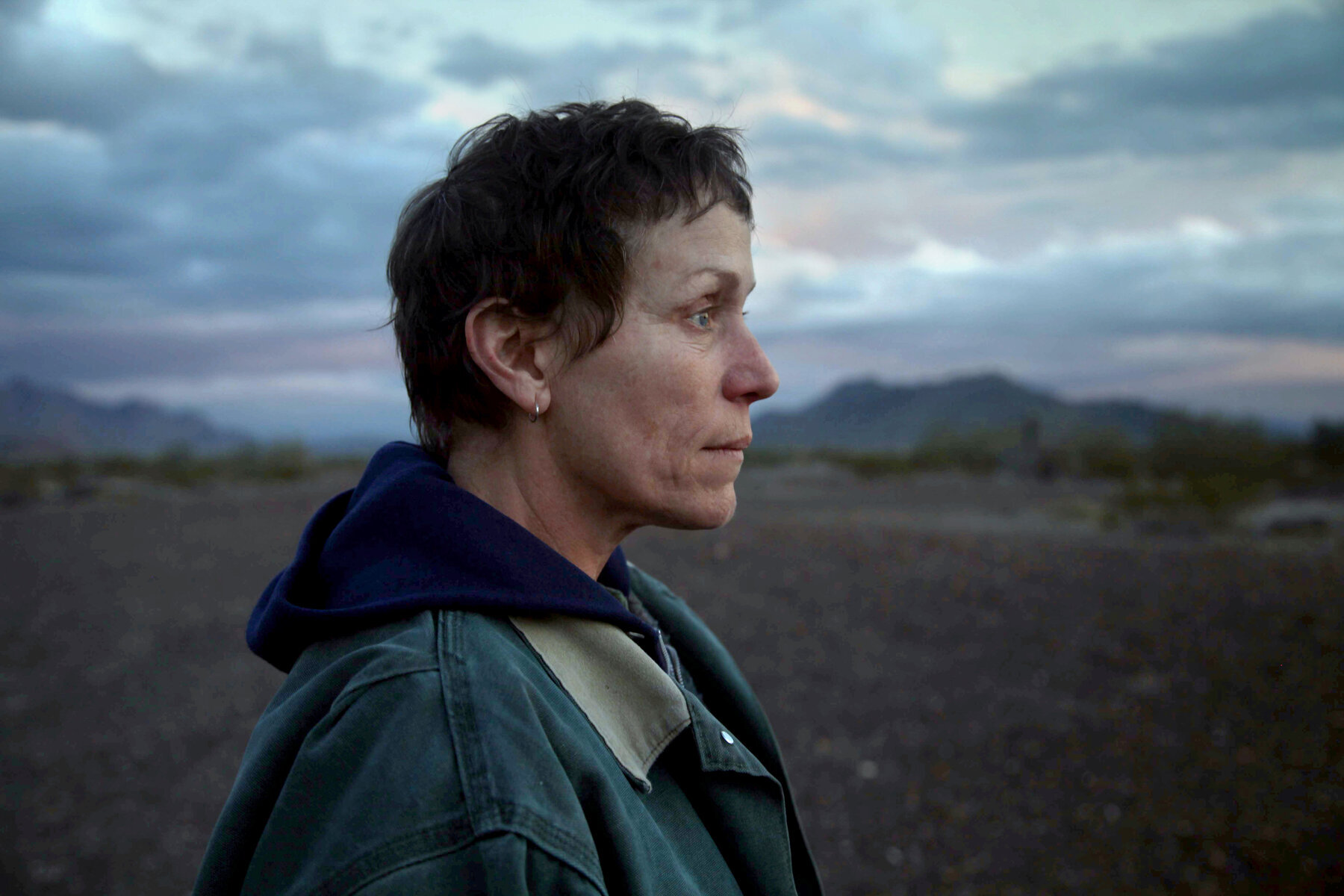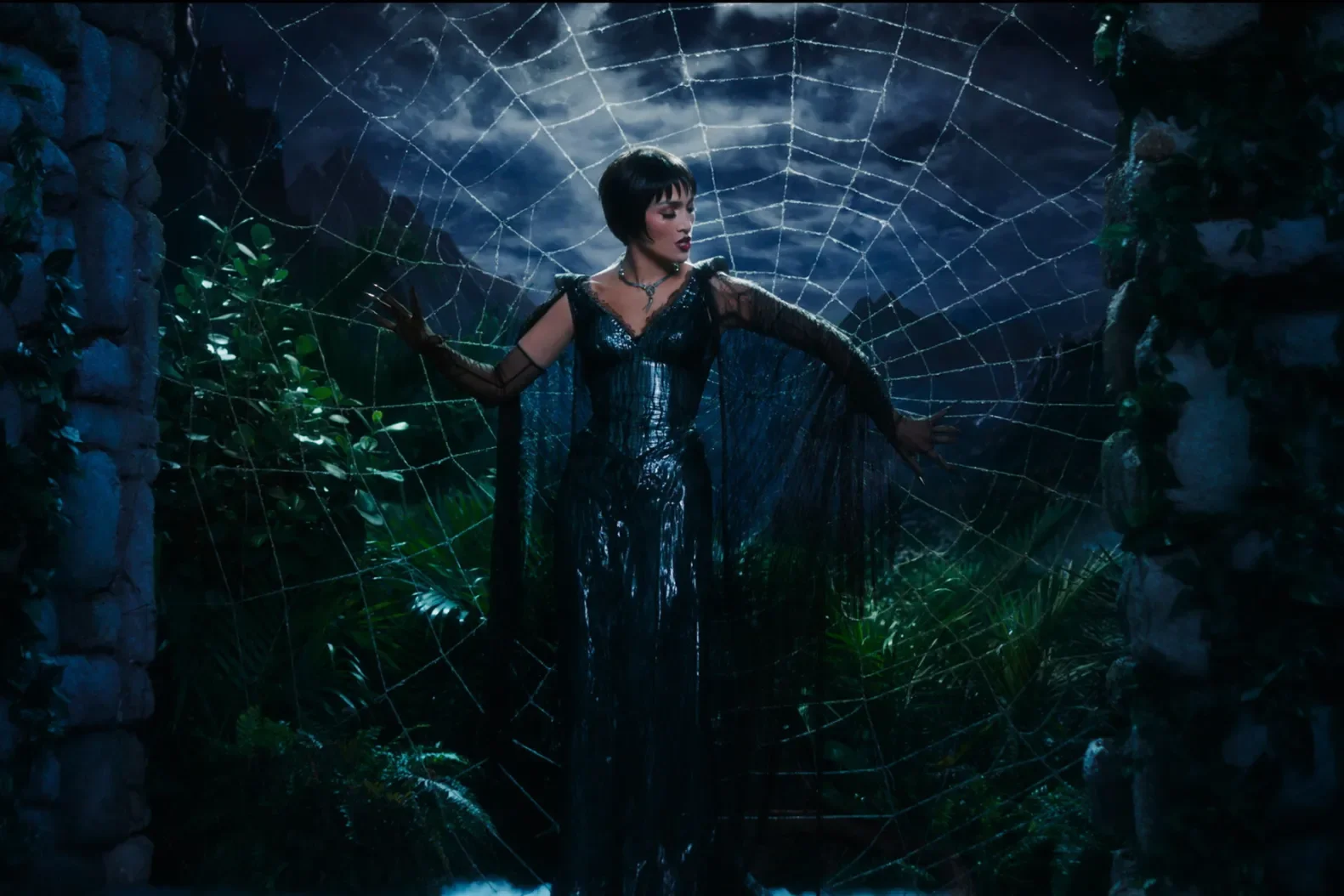Nomadland: A Study of Grief and Freedom
Nomadland, directed, written, and edited by newcomer Chloé Zhao, is a quiet study of grief, solitude, and the unspoken promises we make to ourselves and others. The film follows Fern (Frances McDormand), a recently unemployed widow, as she embarks on a solo expedition through the American west. She has no set destination, simply wandering from campsite to campsite, job to job, meeting eclectic yet oddly familiar characters; untethered nomads seeking temporary comfort in endless desert expanses, vast seaside cliffs, and each other. Here are Amy Sun and Hayley Sussman’s thoughts on this film:
Amy: Can we please start with Frances McDormand’s amazing performance? Zhao selects a beautiful story but it is McDormand who injects it with life. When alone, Fern’s furrowed brows reveal a lingering sadness, weathered by time. Yet it is in her interactions with others that McDormand truly shines. Her attentive gaze permeates fireside conversations and, in the dinner line, she opts to serve others first, revealing an individual who has spent a lifetime caring for another.
Hayley: I love the relationships between Fern and her fellow, more seasoned nomads. Watching Nomadland, I had no idea that Zhao employed many non-actors, nomads actually featured in the source material (a novel of the same name by Jessica Bruder), who imbue the film with authenticity. Among these include Swankie, a blunt and self-assured woman who serves as a mentor to Fern. Through her profound acceptance of a terminal cancer diagnosis (a malady unshared by the real Swankie), she captures a fundamental draw to a nomadic lifestyle, beyond financial necessity or houselessness. She recalls a time when, surrounded by “hundreds and hundreds of swallow nests,” she felt as if she was flying with them, and when she spotted moose in a wood, and when she kayaked in a beautiful lake: for Swankie, a life on the road is a return to nature. Thanks to McDormand’s masterful acting, we relish in the bond of two women who have, willingly or unwillingly, fallen through the cracks of a post-Recession America. And thanks to Zhao’s unconventional use of non-actors, this bond feels incredibly real.
Amy: While Swankie’s roots are spotlighted, they represent one tile in a mosaic of nomadic personas, most prominently visualized around a campfire at Fern’s first stop. Illuminated by the warm, orange glow of crackling flames, audiences are transported with Fern, absorbing the nomads’ stories as if they belonged to people we know. Zhao offers no judgement in her intimate portrayals: a war veteran seeking shelter from the omnipresent urban din, a daughter healing from the loss of her parents to cancer, a corporate retiree removing her sailboat from her driveway. Each was transformed by the loss of their tether, a person or belief tying them to contemporary society. They have embraced impermanence, a concept rooted in Buddhist philosophy, and hence become floating, fleeting, seeking - and seemingly finding - peace within nature. For them, even goodbyes are temporary.
Hayley: On Fern’s own journey, though, not everything is natural and serene; she works odd jobs as a restroom cleaner, spends freezing cold nights in her van, and struggles with money when her van breaks down. Despite all these reminders of the demands of living in modern society, Zhao beautifully frames the nomadic lifestyle as a reclamation of autonomy. We get a sense of how difficult and sometimes lonely van life is for these very real people, but we’re never meant to feel pity. In fact, in the film’s lightest moments — a night Fern spends stargazing with the other nomads, a montage where Fern shouts her own name into nature atop a mountain and takes a nude bath in a natural spring — we feel envious of their freedom.
Amy: This envy is magnified by the present pandemic. Nomadland’s timing is impeccable – as we reevaluate our own priorities within the physical confines of our apartments, freedom carries a powerful, almost intoxicating, draw. What would it be like, to discard our belongings and shun our obligations? To simply drive, with no final destination?
Hayley: Zhao leaves that up to the viewer to decide, but she definitely meditates on the lack of permanence that unifies the nomadic experience (one nomad perfectly sums up this idea near the end of the film, when he tells Fern that there’s no such thing as a final goodbye, just an “I’ll see you down the road”). Fern visits friend and fellow nomad Dave (her unrealized romantic interest), at his estranged son’s Thanksgiving. There’s a moment where the two are framed in a shared solitude at the edge of the dinner table, suspended in a calm silence against the otherwise animated family scene. Zhao leaves ambiguity in whether this reminder of familial structure and permanence inspires regret or relief in Fern, but either way, the moment is an acknowledgement by the two of what they’ve left behind.
Amy: In spite of this unspoken bond, their paths diverge. While Dave chooses to stay - and extends an invitation to Fern to do the same - Fern moves on. Before she leaves, Fern observes Dave and his son playing piano from the stairwell. Their beautiful duet (composed wonderfully by Ludovico Einaudi) contains two juxtaposing yet inseparable parts: Dave’s son plays low, measured chords while Dave completes them with a high, meandering melody. There is no sheet music yet, despite miles and years apart, they both know the song by heart. In the official soundtrack, this piece is named “Dave’s Song”. Though he is willing to share his life and, metaphorically, his song with Fern, she will always be merely an observer, a watcher from the stairs, not a partaker. Perhaps this is why she leaves.
Hayley: That scene is the perfect example of Fern’s existence as an outsider, both of mainstream society and of the nomadic community. Devoid of much narrative structure, Nomadland is Fern’s character study through and through, a woman whose only real tether is the memory of her late husband. Zhao is unobtrusive and respectful in portraying Fern and the other nomads: Fern often reflects on her late husband, but there’s never a saccharine flashback into Fern’s life beforehand; there are no ploys for sympathy, even in Swankie’s story. There’s no grandiose romance between Dave and Fern (although I was rooting for one), and Fern never comes to some sweeping conclusion as to why life has forced her into vagrancy. The movie thrives on subtlety and simplicity, just like the nomads it honors, and leaves the takeaways up to the audience. For me, Nomadland made me nostalgic for a simpler, more natural time, and I don’t even particularly like the outdoors.
Amy: Nomadland achieves both realism in its subtle portrayals of subjects and a dreamlike quality through its soundtrack and cinematography. Perhaps then, it is no surprise that the film has received 6 Oscar nominations, 2 Golden Globes (“Best Motion Picture - Drama” and “Best Director”), and the Golden Lion at the Venice Film Festival. Thanks to Zhao’s deft direction and McDormand’s sensitive portrayal, Nomadland is a must-see film of the year. As the end credits rolled, I couldn’t help but feel bittersweet, yearning for a freedom I cannot pursue.
* Luckily, you need not journey down the road to watch Nomadland: it’s available for streaming on Hulu.
Popular Reviews








